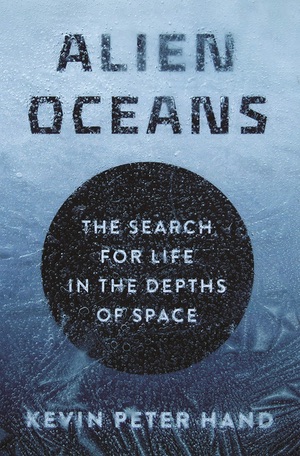Review: Alien Oceansby Jeff Foust
|
| “I want to find life that is alive today, life that is extant as opposed to extinct,” Hand writes of his interest in ocean worlds like Europa. |
Europa Clipper is something of an unusual mission in any case. While NASA was reticent to start the mission, citing the cost impact the multibillion-dollar mission would have on its overall planetary science portfolio, Congress added money to the agency’s budget to both start the mission earlier than NASA wanted and develop it faster than desired. (It also added the provision requiring the SLS launch, arguing it would allow the spacecraft to reach Jupiter faster than alternative launch options.) That was thanks primarily to a single member of Congress, Rep. John Culberson (R-TX), although Congress continued its support for the mission even after Culberson lost reelection in 2018.
Despite that history, the science case for a mission like Europa Clipper is strong, as outlined in Alien Oceans by Kevin Peter Hand, a scientist at JPL. Europa is among the “ocean worlds” in the outer solar system, which includes Saturn’s moons Enceladus and Titan, that may have subsurface oceans of liquid water that could harbor life. He thinks those worlds are better places to look for life beyond Earth than Mars, which lost its once hospitable surface conditions billions of years ago. “I want to find life that is alive today, life that is extant as opposed to extinct.”
For much of the book, Hand goes through our knowledge of those worlds, outlining the evidence of subsurface oceans from spacecraft missions, then examining what it takes for these hospitable worlds to be inhabitable. That includes some informed speculation about how life could thrive there, including advanced or even intelligent life, similar to another recent book (see “Review: Imagined Life”, The Space Review, October 28, 2019).
Hand believes the Europa in particular is the best place to look for life, although he also supports missions to Enceladus as well as the Dragonfly mission to Titan that NASA selected for development last year. Curiously, there’s very little discussion of Europa Clipper in the book. Hand calls it a “fantastic” mission, but only spends about a paragraph discussing the science it will perform; ESA’s JUICE mission to Europa and the other Galilean moons of Jupiter, also scheduled for launch in the early 2020s, also gets only a brief discussion. (Culberson’s role in accelerating Europa Clipper’s development is literally relegated to a footnote.)
Those will be followed by proposed lander missions and, perhaps, a submersible that drills through the ice to reach that subsurface ocean, kilometers below the surface. That exploration may take decades or even a century to carry out, he acknowledges near the end of the book. “Building robotic spacecraft to explore the solar system is the modern analog of building cathedrals,” he writes. “They take time, commitment, and vision.” Hopefully the Europans are patient.
Note: we are temporarily moderating all comments submitted to deal with a surge in spam.
